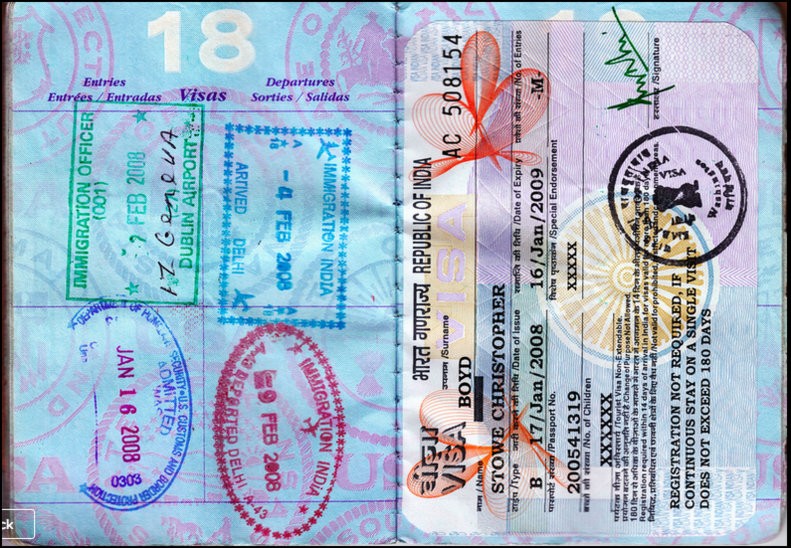India, with its rich cultural heritage, vibrant traditions, and diverse landscapes, attracts visitors from around the globe, including Danish citizens. Whether visiting for tourism, business, or other purposes, Indian Visa for Danish Citizens understanding the Indian visa application process is essential. This comprehensive guide covers the types of visas available, the application process, required documents, and important tips for Danish citizens planning a trip to India.
Tourist Visa
For Danish citizens looking to explore India’s historical sites, cultural festivals, and natural beauty, the Tourist Visa is the most common option. This visa is typically valid for up to 6 months, allowing multiple entries. It is intended for those who plan to engage in tourism-related activities, visit friends and family, or undertake short-term yoga programs.
Business Visa
Danish citizens intending to engage in business activities such as meetings, conferences, trade, or establishing business contacts in India should apply for a Business Visa. This visa is generally valid for 1 year or more with multiple entries, depending on the applicant’s business requirements. It requires an invitation from an Indian business entity and proof of business activities.
Medical Visa
The Medical Visa is for Danish citizens seeking medical treatment in India. This visa is valid for up to 6 months and can be extended if necessary. Applicants must provide medical documents from recognized hospitals in India and proof of their ability to cover treatment costs. Accompanying family members can apply for a Medical Attendant Visa.
Student Visa
Danish students accepted into Indian educational institutions for full-time courses must apply for a Student Visa. This visa is granted for the duration of the course, up to 5 years. Applicants need to provide proof of admission, financial resources to support their stay, and meet health and character requirements.
Employment Visa
For Danish citizens with a job offer from an Indian company, the Employment Visa is necessary. This visa is granted for the duration of the employment contract, up to 1 year initially, and can be extended. The employer must be a registered company in India, and the applicant needs to provide proof of qualifications and experience relevant to the job.
Online Application (e-Visa)
Danish citizens can apply for an Indian e-Visa, which simplifies the application process for short-term stays. The e-Visa is available for tourism, business, and medical purposes and allows a stay of up to 60 days with double entry. The application is completed online through the Indian government’s e-Visa portal, requiring basic personal and travel information, passport details, and a recent photograph.
Regular Visa Application
For longer stays or specific visa categories, Danish citizens need to apply for a regular visa through the Indian Embassy or Consulate. The process involves filling out the visa application form online, printing and signing it, and submitting it along with required documents to the designated visa service center.
Required Documents
Typical documents required for an Indian visa application include:
Passport: Valid for at least six months beyond the intended stay, with at least two blank pages.
Photograph: Recent passport-sized photograph meeting specific requirements.
Application Form: Completed and signed visa application form.
Supporting Documents: Depending on the visa type, additional documents such as invitation letters, medical records, proof of financial resources, and admission letters may be required.
Visa Fee: Payment of the visa application fee, which varies depending on the visa type and duration.
Health and Safety
Danish citizens are advised to obtain travel insurance that covers health expenses while in India. Indian Visa for Polish Citizens It’s also recommended to consult a healthcare provider about necessary vaccinations and health precautions before traveling.
Visa Validity and Conditions
It is crucial to adhere to the visa validity and conditions specified on the visa. Overstaying or violating visa terms can lead to fines, deportation, and future travel restrictions. Familiarizing oneself with India’s local customs, traditions, and laws is essential for a respectful and enjoyable stay. Understanding cultural norms and legal regulations helps in avoiding misunderstandings and ensures a pleasant travel experience.
Conclusion
Obtaining an Indian visa for Danish citizens involves understanding the appropriate visa category, preparing necessary documents, and following the application process meticulously. Whether traveling for tourism, business, medical treatment, or education, adhering to visa requirements and planning ahead will ensure a smooth and rewarding journey to the culturally rich and diverse country of India.
